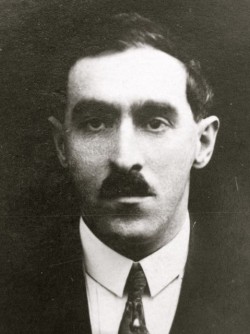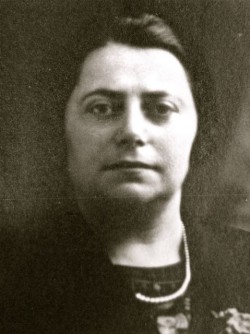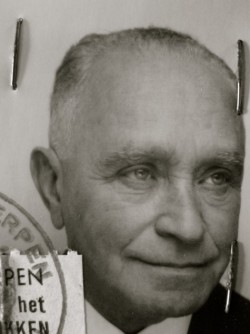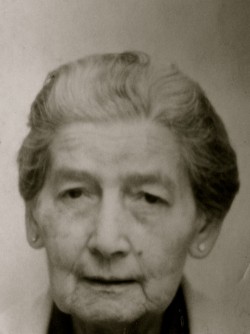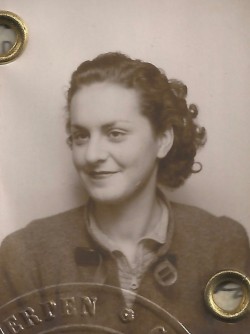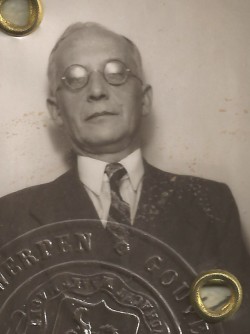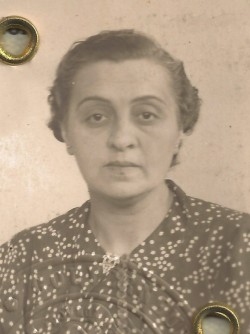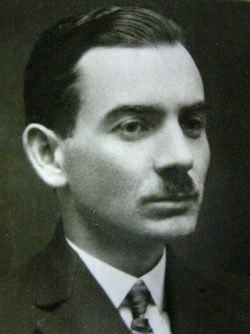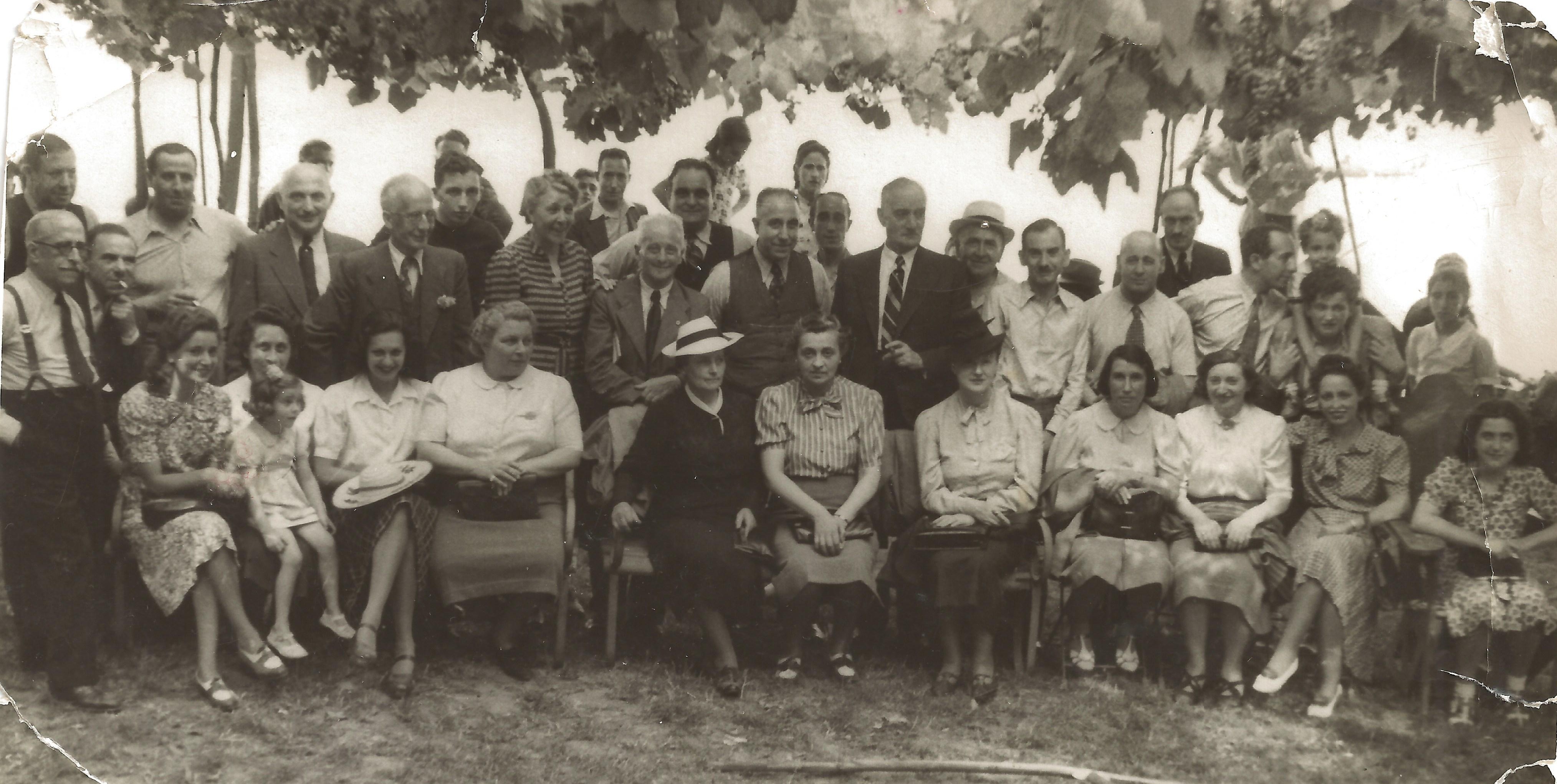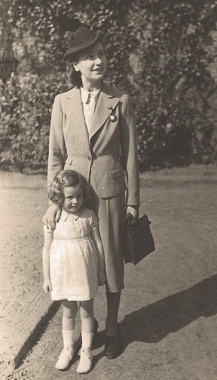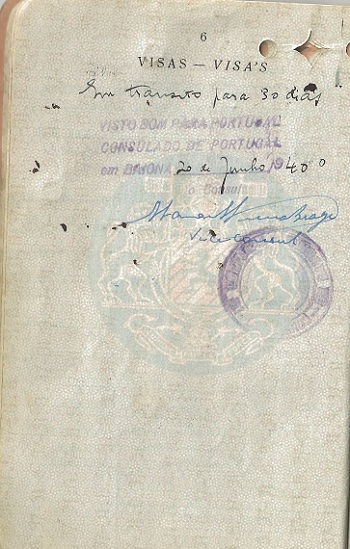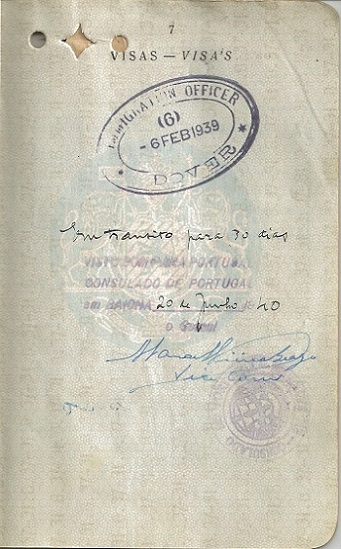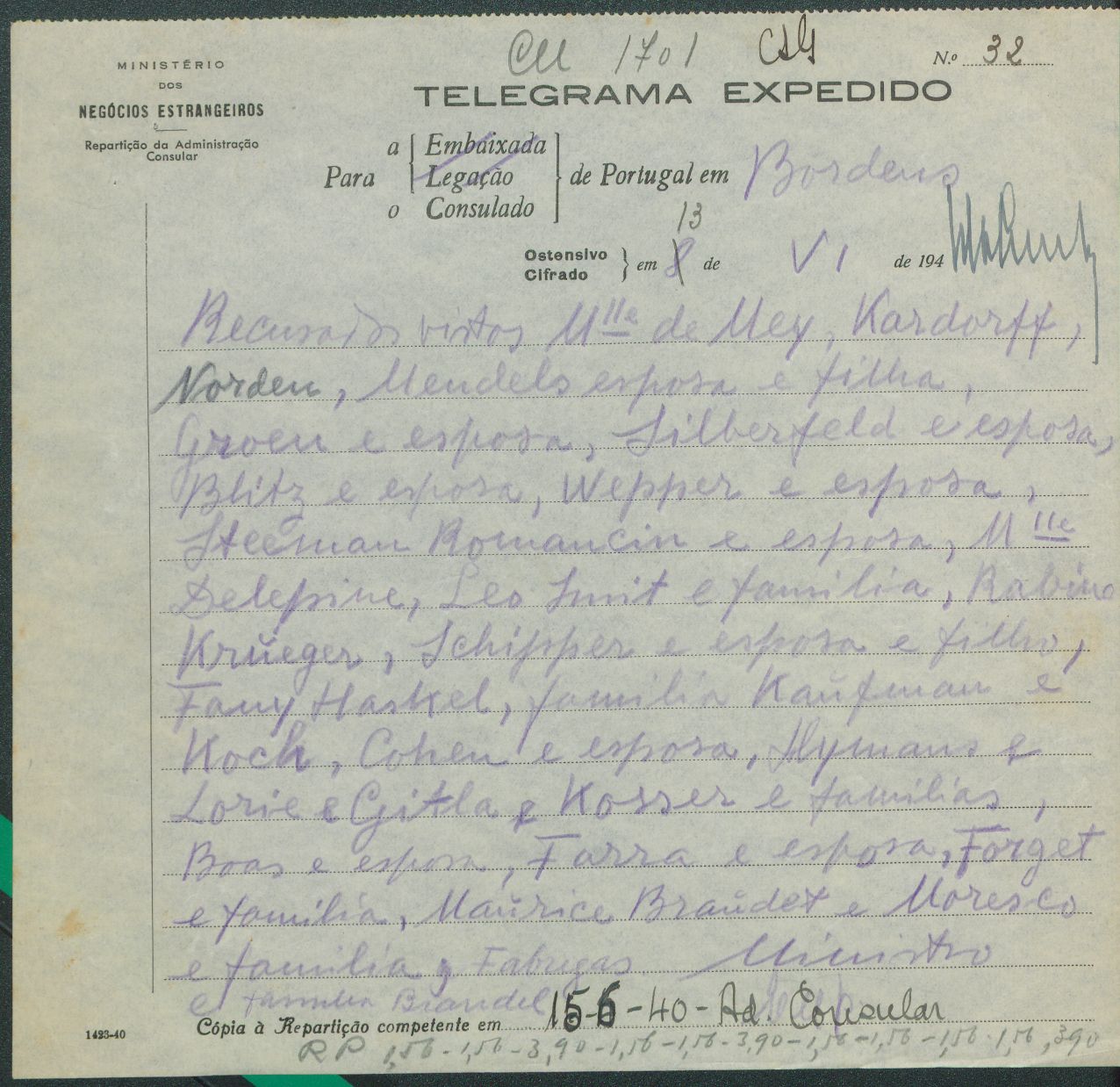Hymans/Kosser/Lorie/Reiner
Visa Recipients
- HYMANS, Josef P A
Age 63 - HYMANS, Rebecca née SMIT P A
Age 58 - HYMANS, Ruth Salome V P A T
Age 4 - HYMANS, Suzanne née LORIÉ
P A
Age 34 - KOSSER, Frieda née LORIÉ
P A
Age 38 - KOSSER, Leopold P A
Age 45 - LORIÉ, Augusta/Gitla née SOLDINGER P A
Age 64 - LORIÉ, Georgette Rachel V P A T
Age 21 - LORIÉ, Hirsch/Henri P A
Age 50 - LORIÉ, Pauline née RUFF P A
Age 52 - REINER, Majer Isaac P A
Age 44
About the Family
This extended family received visas signed by Vice-Consul Manuel Vieira Braga, following instructions from Aristides de Sousa Mendes, in Bayonne, France on June 20, 1940. Their visas had previously been explicitly denied by Salazar, the Portuguese head of state.
The HYMANS family and Suzanne's mother, Augusta LORIÉ, sailed on the vessel Nea Hellas from Lisbon to New York in October 1940.
It is believed that the KOSSER couple went to England. Georgette LORIÉ sailed to New York on the Siboney in December 1940. Hirsch and Pauline LORIÉ sailed to New York on the Serpa Pinto, also in December 1940.
Majer Isaac REINER was a cousin and traveled with the HYMANS family from Belgium to Portugal. He sailed to New York on the Lourenço Marques in January 1941. Jacques SOLDINGER, the brother of Augusta LORIÉ, also received a visa from Aristides de Sousa Mendes and emigrated through Portugal.
- Video
- Photos
- Artifacts
- Testimonials
Testimonial of Georgette STANDISH née LORIE
1989 (excerpted from memoirs)
We didn't leave Belgium on May 10. On May 14, we went to La Panne, at the French border. My mother had rented an apartment six months earlier in anticipation. The planes came over during the night of the 9th. They came low. The noise was deafening. Bombs were thrown on the train station. I went to the office with my father. We didn't empty it completely (the safe). The Germans emptied the safe and left a note.
We stayed for a while, at least ten days, at La Panne. We had to go further. My father hooked up with the Lindenbaums. They took my mother, father and me along. That was a horrible trip. We went to Arras in Northern France. British soldiers. There was nothing to eat and drink. We got on a train to Paris. Paris was in a terrible state. They (the Germans) bombed every night. My mother and I walked on the Rue de Rivoli and my father was enraged.
We went from Paris to Bordeaux by train and finally we came to Bordeaux. Belgium and Holland capitulated. We were the horrible Belgians. People ran to the consuls and the consuls were horrible people. There was very little to eat. The population of Bordeaux quadrupled. Irene came to Bordeaux with her father. Went to the American consul. All the papers were thrown into the place. The American government sent boats to pick up American citizens from Bordeaux.
The despair of all these people. You were in a net and you couldn't get out. We couldn't get papers in Bordeaux. We went to Biarritz which was also swollen to capacity. You had to go to Bayonne. He went every day, poor guy. You needed a transit visa through Spain and an entry visa to Portugal. Money in each page. Finally, we got these papers to go to Spain. My father had diamonds on him. He had to leave them at the border. I had heard that women had them in their shoulder pads. He got a receipt from the French, it was thievery. He also had gold pieces.
It was blazing hot in that train. An ordeal (in June). The bathrooms, you couldn't penetrate them. You could see the tracks and there was no food. But the train stopped frequently and the peasants were unbelievable. They brought food and drinks. They gave it. They were very generous. We came to the border and the Portuguese secret police examined us and told us where we could go. Lisbon was overrun. We had to go to Porto. At the border, the peasants were so kind. A couple gave us their bedroom. There was no bathroom, just an outhouse. The next day, we boarded the train to Porto.
Porto was like Peyton Place. Everybody was in the other's pot. After noon, the diamond dealers had nothing to do. They either played bridge or went to look at women. I was in Portugal six months. I waited and waited. My parents came weeks later. It was lovely. I had my own room and three meals a day. One dollar a day per person for three meals. It cost my father $3 a day for the three of us. The American consul in Porto was a bastard. They hated the Jews. I got a US visa immediately because I was born in Holland. My parents didn't get a visa. The visa was good for six months. So I went alone. The consul said my father had deposited $5000 in a bank in New York so I could go. So I had to go.
The boat, December 1940, SS Siboney -- my father paid $500 for a cot in the dormitory. It smelled so bad. There were 40 girls. I couldn't stand it. Boat left from Lisbon. This was the first time in my life that I was alone. We were stopped by U-boats. We took the southern route to Bermuda. They came aboard. They wanted to look in the log book. Antoine de St. Exupery was on the boat. The crossing took 10 or 11 days.
Anna Reiner and Willy Reiner came to see me in New York. My parents came at the end of January 1941. We stayed at the Beacon Hotel, 74th and Broadway.
Testimonial of Ruth CHARCHAT née HYMANS
I was born at the wrong time in history. It was 1936 in Antwerp, Belgium. I came from a wealthy diamond dealer family. My mother had custom-made furniture from Paris, beautiful clothes, and servants. My biggest unpleasantness was sitting every night while my hair was put in cloth curlers (bigoudis) so I would look like Shirley Temple.
The Second World War broke out, and my father was drafted into the Belgian army. My mother got a bad case of measles. She asked my uncle to take me to New York. He refused, and said nothing would happen.
My charmed life came to a quick end in May 1940. I heard loud noises outside. I was told we had to leave fast. The noises were not thunder but bombs from les boches. The Germans were coming to get us, I was told. I was allowed to take my teddy and my quilted, beige blanket with little flowers on it.
We took my paternal grandparents' Packard black limousine car with their chauffeur. My mother, my maternal grandmother, my paternal grandparents, my mother's male cousin and me. The chauffeur put a mattress on top of the car to protect us from bombs. There were many people on the road, both walking and on bicycles, who were trying to escape the war. My grandparents thought we should go to the seashore to a Belgian resort called Le Zoute. My mother insisted that we should try to get to America, to New York, where her sister had gone.
The car ran out of gas somewhere in France. We abandoned the car and started to take trains. The train was very uncomfortable, packed with people and no food. We had one salami for thirteen people. I held my mother's skirt.
At the borders the soldiers made us stand in the hot sun for many hours while they separated us according to where we were born. My mother's mother had a Polish passport, my father's parents had Dutch passports, and my mother and I had Belgian passports. We were given vaccinations. I still have the scars today where my mother tried to wipe the serum away. My grandfather and I got very sick.
We arrived in Portugal and stayed in a nice hotel in Porto. It was filled with Jewish refugees. The people of Portugal were very kind to us.
My mother was always at the American consulate trying to get visas for America. My father was able to get out of the Belgian army. He went back to Antwerp to find us, but was told we were in Portugal, where he managed to join us.
After a few months we left on a Greek boat for New York. It was very dangerous. There were German torpedoes and storms. After two weeks we arrived in New York harbor on a sunny day, and we rejoiced at the wonderful sight of the Statue of Liberty. A fluffy dog threw up on the deck.
We got to the pier in Manhattan. We were separated again, according to our passports. My grandmother had a Polish passport, and was sent to Ellis Island. Polish Jews were not allowed in America, as there was a quota for Polish Jews. My mother had to go to Washington, and take my grandmother to Cuba, and then come back to the United States.
I was an ordinary little girl who grew up and had an ordinary life. Why did I survive at an extraordinary time and live to see my grandchildren, when so many little girls did not?



